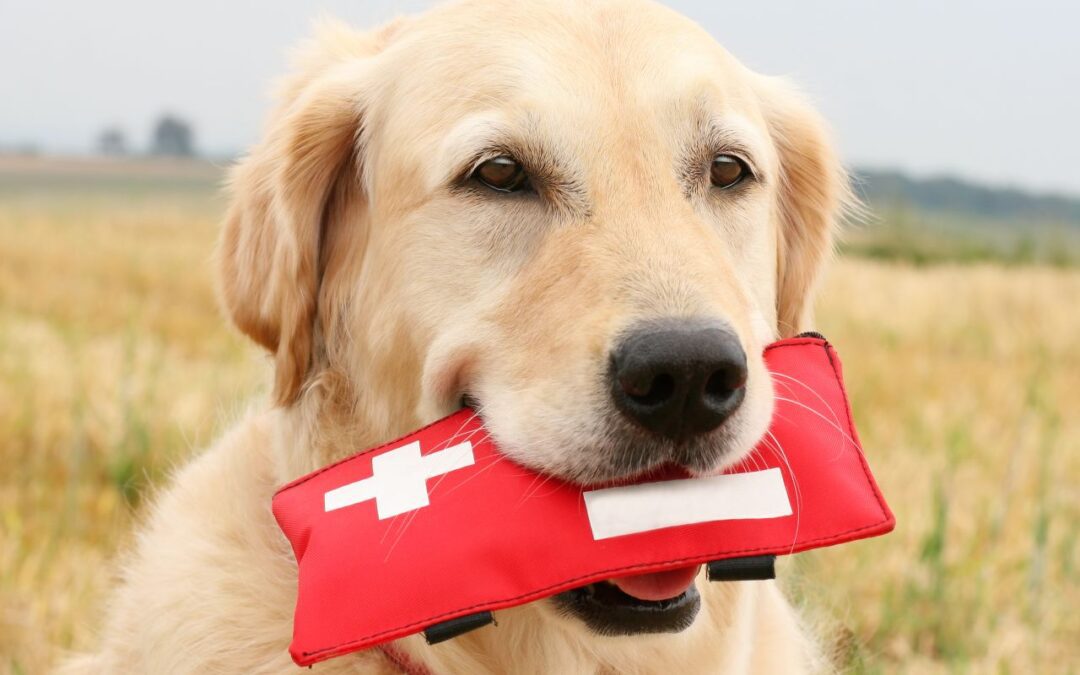Basic Animal First-Aid Tips
Here are first-aid tips for five common situations. Basic animal first-aid isn’t a substitute for professional veterinary care, but it can help you minimize an issue until you can see a doctor.
Bleeding Cuts and Wounds
If your pet cuts his feet on something sharp, gently clean the area with a mild antiseptic. Bandage the wound if needed. If you can’t stop the bleeding, or the wound is more severe, take your pet to the vet immediately.
Burns
Burns from any source require immediate attention. For minor burns, gently clean the area with a mild antiseptic. Dab on a soothing gel or cream, such as aloe vera. You should seek immediate veterinary attention even after applying first aid to ensure there is not a more serious issue.
Dog Bites
All animal bites require veterinary attention. For minor dog bites, schedule a routine appointment. Severe bites are considered an emergency. If you think a wild or stray animal has bitten your dog, call your vet immediately.
Eye Conditions
If your dog’s eye is scratched, or you see signs of a potential infection, make a vet appointment without delay. Try to keep your dog from scratching his eye.
Ear Problems
Your dog’s healthy ears should be a pale pink, shiny color on the inside. The ears should not have any wax or discharge. Finally, the ears should not have an odor. If anything’s out of the ordinary, consult your veterinarian.
First Aid for Vomiting Dogs
Few noises are as disturbing as your dog getting ready to vomit. But putting that aside, how can you help your poor dog feel better afterward?
If your dog only vomits once, and he otherwise seems normal, don’t feed him for around 12 hours. After that, a bland diet of white rice and boiled chicken may help. Don’t withhold food for dogs with diabetes and other chronic conditions. This also applies to very young puppies and small dogs.
Give your dog lots of fresh water so he doesn’t become dehydrated. However, spread out his water consumption to avoid upsetting his stomach further.
If you think your dog consumed something toxic, contact the Pet Poison Helpline at 1-855-764-7661. If your dog vomited multiple times, and you don’t know why, see your vet immediately. If your dog stops eating and/or drinking, is very lethargic, or develops diarrhea, consult your vet.
Take a Pet First-Aid Class
In an online pet first aid class, you’ll learn how to monitor your cat’s or dog’s vital signs and deliver preventive care. You’ll also learn how to provide initial emergency care. These steps can be vital in an emergency situation and give you the time you need to get safely to a veterinarian.
While your pet first aid may help after an injury or during illness, you should quickly get your pet to All Pet Animal Hospital. Our highly-skilled veterinarian will examine your pet and perform diagnostic services. Your pet may require veterinary surgery to remove an obstruction or other object. We’ll provide excellent care that should help your pet to feel better. Call for an appointment today.

